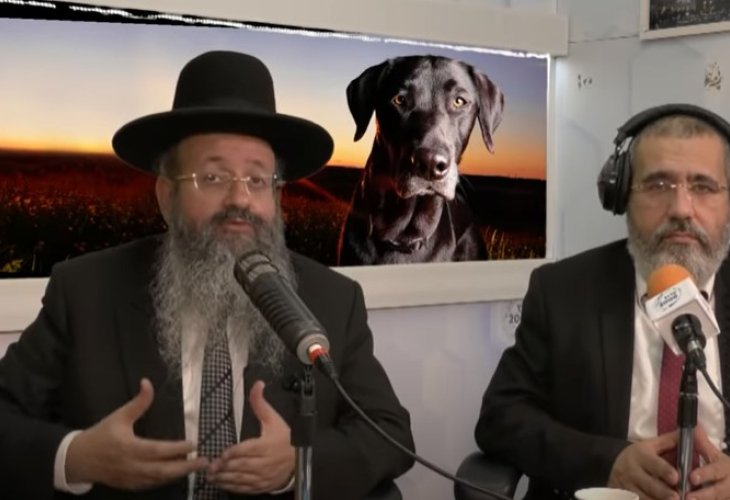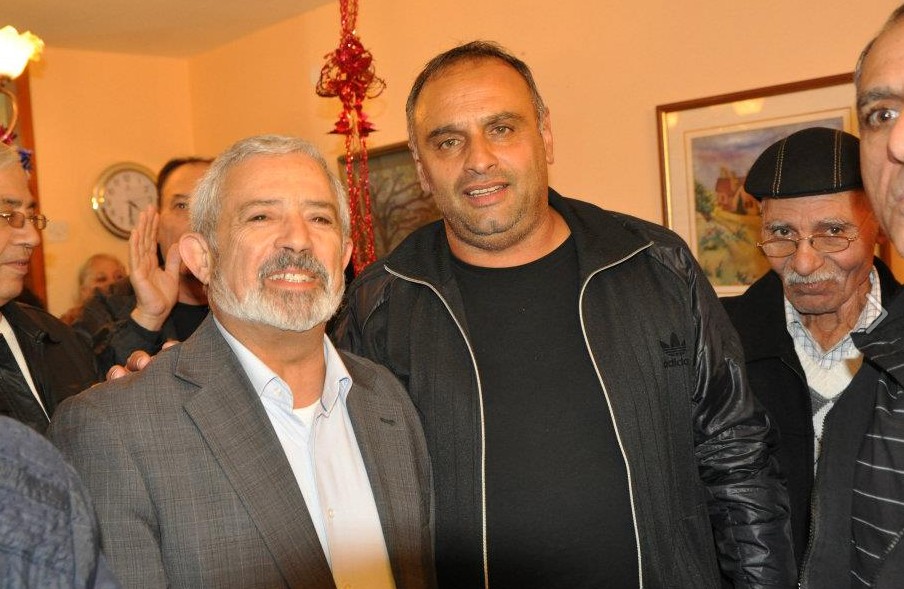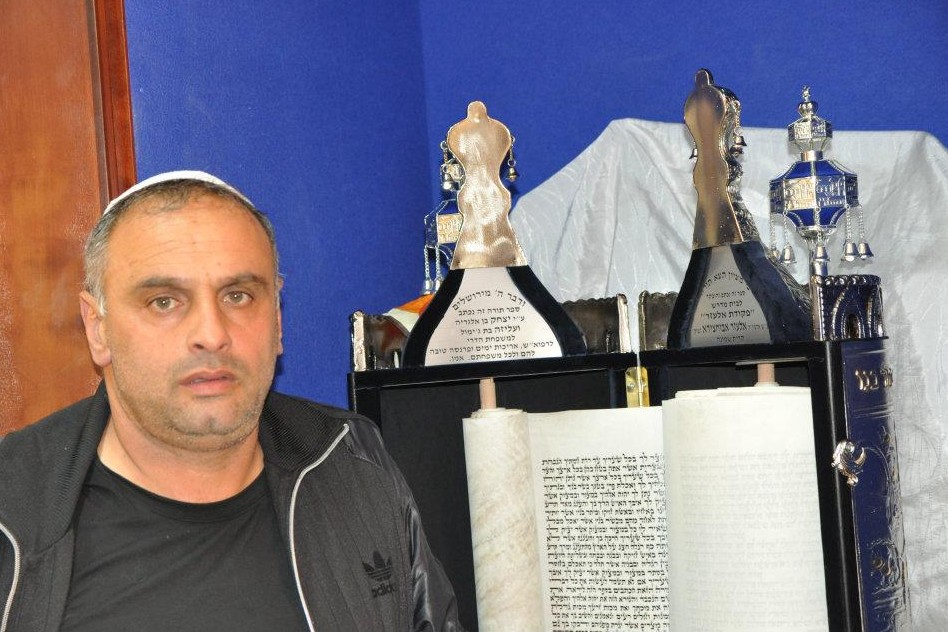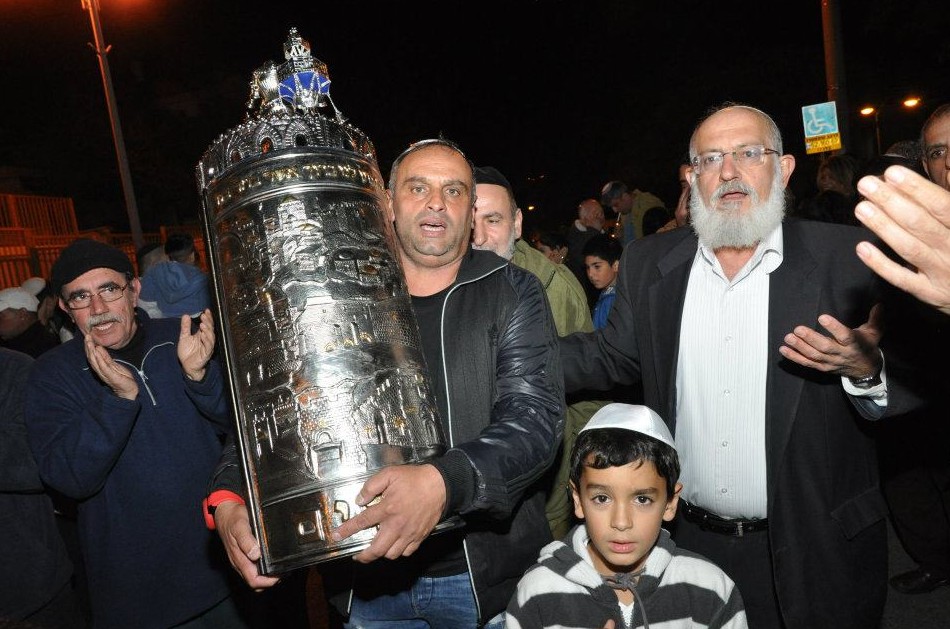Shimon Hadari's Remarkable Victory
No peak in Shimon Hadari's career compares to his victory in establishing the first synagogue ever in Kibbutz Maayan Baruch. On synagogues, the faith that energizes him, and how he remains active in a religious party even without a kippah on his head.

Shimon Hadari is mostly known publicly as a successful soccer coach, having coached, among others, Ironi Kiryat Shmona, Hapoel Nazareth Illit, and Beitar Jerusalem. However, there are fascinating details in his biography that even the most knowledgeable sports journalists might not know. For instance, he is responsible for the establishment of two synagogues.
The first synagogue that Hadari established came about due to an almost unimaginable tragedy: the murder of Baba Elazar three years ago. "I am a traditionalist, and I was very close to Rabbi Elazar for 14 years," Hadari explains. "Once a month, I would visit him from Kiryat Shmona and consult with him on any matter. On one occasion, I told him that my parents wanted to write a Torah scroll, and I asked which scribe to hire. He told me that whoever writes for him would also write for me and asked me to bring him two parchment sheets to choose from, which I did. The writing was delayed for various reasons, and ultimately, the Torah scroll was completed only after the murder, which left a massive void in me. It was clear to me that I would donate the Torah scroll to a place that would carry Rabbi Elazar's name."

The opportunity soon arose through a friend of Hadari's, involved in the charity organization 'Yad Ezra veShulamit'. "They built a youth center in Kiryat Shmona, and he came to me and said they were short of a synagogue. I said I was willing to arrange a donation of everything needed for the synagogue, provided it was named after Rabbi Elazar."
The foundation agreed, and the synagogue was named "Pekudat Elazar". The Torah scroll was brought in with great pomp and ceremony, attended by hundreds. "Rabbi Elazar once told me that his mission was to bring people closer to the Torah," Hadari says. "This place is intended to bring youth closer to the Torah – they provide clubs and activities alongside Torah lessons. Today, there is also a Talmud Torah and kindergartens there. I feel the synagogue brought massive inspiration to the place."
"A Jewish Settlement Without a Synagogue?"
The second synagogue by Shimon Hadari had a more winding path. Three years ago, when he moved to reside in Kibbutz Maayan Baruch, Hadari was astonished to find that there was no synagogue in the kibbutz. "When I went to the kibbutz secretariat to inquire about it, they told me that the kibbutz was opposed to synagogues, but they would put it to a vote among the kibbutz members. I didn't understand why a vote was necessary for this – in my view, a synagogue is no different from a clinic; it is essential public service."
Hadari lost the vote by a margin of 14 votes, and the kibbutz informed him that there would be no synagogue, but he could try to bring the matter to another vote in a year. Hadari immediately objected. "I told them it's inconceivable; there's no such thing as a Jewish settlement in Israel without a synagogue."
Thus began the struggle. Hadari and a few others from the kibbutz obtained permission from a kibbutz resident living in France to pray in his home temporarily. "At some point, I said it was no longer appropriate to continue praying in a private home. I went to the kibbutz secretary and said: either you arrange a synagogue for us peacefully, or I will occupy a building, and I don't care about democracy and votes."
Why was it so important to you to establish a synagogue?
"I always told the kibbutz that I want two basic things: to be able to bring my children to the Friday evening prayer at the synagogue and to take them home to hear *Kiddush*."
At this point, not a few high-ranking people in the Upper Galilee got involved in the dispute, among them the head of the Upper Galilee Regional Council, Giora Zaltz. "He tried very hard to help. He can't impose anything, but he can organize meetings and try to mediate between the sides." Another who came to Shimon Hadari's aid was the 'Ayelet HaShachar' organization, which funds the construction and renovation of synagogues throughout the country. "Their lawyer participated in one of the decisive meetings."

Meetings, discussions, involvement...and still no synagogue was established. "The kibbutz constantly remained on its stance: we're checking..."
Just before Hadari followed through on his threat to occupy a building, a veteran kibbutz member approached him with a compromise: "Take a breath, wait a bit, and I'll arrange a temporary structure for the synagogue," he promised. "After that, you'll get a permanent building."
Hadari agreed and received a classroom that was then on vacation. When the students needed to return to studies, the kibbutz allocated a shelter for the worshippers. "Rabbi Shlomo from 'Ayelet HaShachar' brought us furniture for the synagogue and made sure there were young men to complete a minyan. Ultimately, the synagogue was peacefully established, and apparently, it was essential above."
The cherry on top, in Hadari's eyes, was the Yom Kippur prayers held shortly thereafter in the new synagogue. "Someone from the kibbutz management came to me and said that in addition to the traditional prayer, they wanted to hold a Reform prayer as well. He asked that we give them the synagogue for the Reform prayer and that we pray in the club instead. We vehemently refused. In the end, eighty people came to us, while barely four attended the Reform prayer..."
Spiritual Recharge
You don't wear a kippah. Where does your strong connection to Judaism come from?
"When I would visit Rabbi Elazar, I felt like a phone with one charging bar – and when I returned, I was fully charged. That's what the Torah and the mitzvot do for me. If I don't pray, don't put on tefillin – I just feel weak."
How do you continue without the tzaddik you were close to?
"It's not simple. In our last meeting, he told me that there's a harsh decree on the people of Israel, and then advised me, without my asking, on all areas of my life, including soccer. I left with a bad feeling, and a few days later, he was murdered.

"The ways of Hashem are mysterious, but I see that many of the righteous of the generation are moving away from us and there are no replacements, and I think maybe Hashem wants us not to rely solely on the tzaddikim but to remember to turn to Him directly."
In keeping with the commitments he made to Rabbi Elazar's memory, Hadari serves as the head of the Shas party headquarters in Kiryat Shmona. "I am bound by my commitment to Rabbi Elazar to act for Shas. Besides, I am a good friend of Yehuda Chaim, chairman of Shas in the city. He's a God-fearing man who is only interested in Hashem."
What do you think about what happened in the last government?
"I think religion should not be pushed into a corner as was done in recent years. We need Torah and Torah scholars. It's persecution for no reason. But once I read the tractate Sotah and saw that all the signs of the footsteps of the Messiah exist today: the cost of living is rising, for instance, and scholars are disrespected. This indicates that everything is planned and in control. Our role is just to do what we need to ensure the state remains Jewish. Judaism and the Torah are the pillars of the state."

